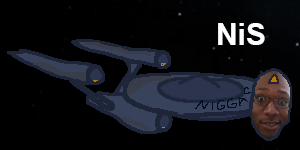

User Controls
Guys what u fink?
-
2023-09-13 at 8:25 PM UTChttps://muzeum1939.pl/en/war-began-gdansk/557.html
„In 1938-1939, the Third Reich began its territorial expansion, annexing Austria, the Czech lands and Klaipeda. Poland was to be next, and the Reich demanded its consent to a German takeover of Gdańsk.
On Friday, 1 September 1939, at 4.47 the commander of the battleship Schleswig-Holstein gave the order to open fire at Westerplatte. A minute later, the first salvos fell. The Westerplatte garrison fulfilled its fundamental duty to defend the Depot in the first 12 hours of fighting. Its solitary defence of Westerplatte in the days that followed came to symbolise the heroism and courage of the Polish soldier. In the first days of the War, Polish Radio announcements that “Westerplatte continues to fight” upheld spirits across Poland. It was only on 7 September that the crew capitulated, realising that further resistance was hopeless. The Germans described the defence of Westerplatte as “the Polish Verdun”. As they accepted the surrender, the Germans were astounded when they found no system of underground fortifications, which, they thought, had made the Poles’ long defence of the Depot possible. To this day, Westerplatte exemplifies a battle against an overwhelming enemy, a battle of encirclement, a battle for honour.
Poland paid an enormous price for rejecting Hitler’s demands. From the very beginning of the Nazi and Soviet invasion of Poland, civilians and prisoners-of-war became victims of premeditated crimes. They included Poles living in Gdańsk before the War, who were exterminated in the nearby Stutthof concentration camp.
Following the Second World War it was here, in Polish Gdańsk, that opposition to the Soviet-imposed Communist system began to grow. The workers of the Gdańsk shipyard were at the heart of this opposition. Their August 1980 strikes and the birth in Gdańsk of the first trade union in a socialist country independent of Communist authorities, “Solidarity,” which was led by Lech Wałęsa were a watershed.” -
2023-09-13 at 9:06 PM UTC
Originally posted by Wariat https://muzeum1939.pl/en/war-began-gdansk/557.html
„In 1938-1939, the Third Reich began its territorial expansion, annexing Austria, the Czech lands and Klaipeda. Poland was to be next, and the Reich demanded its consent to a German takeover of Gdańsk.
On Friday, 1 September 1939, at 4.47 the commander of the battleship Schleswig-Holstein gave the order to open fire at Westerplatte. A minute later, the first salvos fell. The Westerplatte garrison fulfilled its fundamental duty to defend the Depot in the first 12 hours of fighting. Its solitary defence of Westerplatte in the days that followed came to symbolise the heroism and courage of the Polish soldier. In the first days of the War, Polish Radio announcements that “Westerplatte continues to fight” upheld spirits across Poland. It was only on 7 September that the crew capitulated, realising that further resistance was hopeless. The Germans described the defence of Westerplatte as “the Polish Verdun”. As they accepted the surrender, the Germans were astounded when they found no system of underground fortifications, which, they thought, had made the Poles’ long defence of the Depot possible. To this day, Westerplatte exemplifies a battle against an overwhelming enemy, a battle of encirclement, a battle for honour.
Poland paid an enormous price for rejecting Hitler’s demands. From the very beginning of the Nazi and Soviet invasion of Poland, civilians and prisoners-of-war became victims of premeditated crimes. They included Poles living in Gdańsk before the War, who were exterminated in the nearby Stutthof concentration camp.
Following the Second World War it was here, in Polish Gdańsk, that opposition to the Soviet-imposed Communist system began to grow. The workers of the Gdańsk shipyard were at the heart of this opposition. Their August 1980 strikes and the birth in Gdańsk of the first trade union in a socialist country independent of Communist authorities, “Solidarity,” which was led by Lech Wałęsa were a watershed.”
muh Schleswig-Holstein